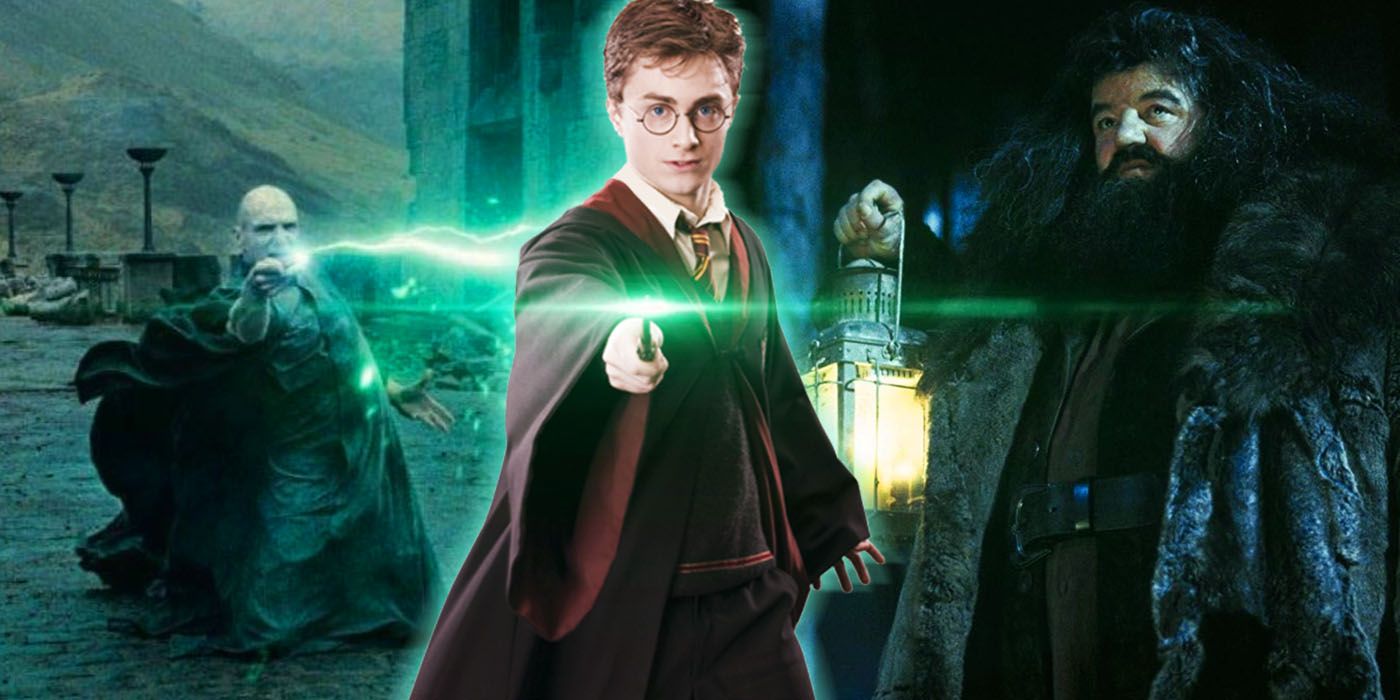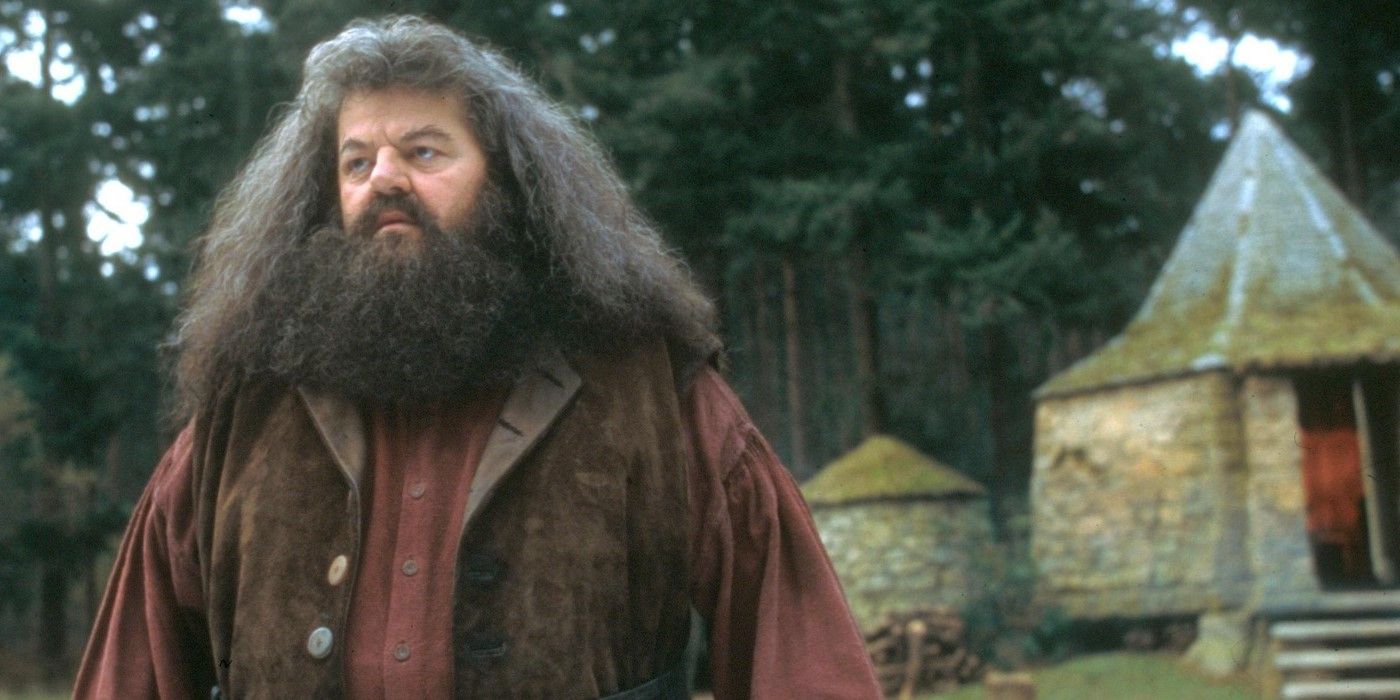Of all the spells in the Wizarding World of Harry Potter, the most feared of them all is Avada Kedavra, the Killing Curse. Able to kill its target in a single flash of eerie emerald light, the spell is one of the three incantations recognized by the Ministry of Magic as a Forbidden Curse, with the consequence for casting such a spell on a human target resulting in a lifetime imprisonment in Azkaban. And while many fan-favorite characters have fallen victim to the Killing Curse, one surprising figure working at Hogwarts School of Witchcraft and Wizardry may possess limited immunity from the spell's full, lethal effects: Rubeus Hagrid.
The friendly game and groundskeeper of Hogwarts, Hagrid is the person that introduced Harry to his magical destiny and served as one of his closest friends once Harry arrived at the private school. Hagrid was revealed to be a half-giant, the son of a human father and giantess mother that was raised in the human world. Hagrid's parentage gave him a towering stature, along with superhuman strength and endurance, but also impeded his ability to channel his magical abilities as well as human peers. This led to him struggling as a student at Hogwarts before being expelled after taking the blame for Tom Riddle unleashing the basilisk from the school's chamber of secrets. But Hagrid's parentage also comes with additional resistances to magic.
In the Harry Potter franchise, giants possess a natural resistance to magic, diminishing spells' effectiveness when cast upon them. This was demonstrated by Hagrid's full-giant brother Grawp able to shrug off most spells that were cast on him when confronting the Death-Eaters during the climactic Battle of Hogwarts. It is important to note that giants do not possess a complete immunity towards magic, with powerful spells and adept wizards still capable of inflicting the intended effect on giants but the greater resistance leads to a noticeably reduced result while less competent wizards have little effect casting spells on giants at all.
The Killing Curse itself is not absolute, even when cast upon humans, depending on the strength of the spellcaster themselves. Barty Crouch, Jr., while disguised as Alastor Moody, claims that the potency of the Killing Curse depends on the strength and conviction of the one casting it. Crouch estimates that an entire class of Hogwarts students wouldn't be able to kill him with the curse due to the general unfamiliarity with the spell and lack of commitment towards taking his life. This suggests that a less adept wizard would be unable to kill another human, let alone a half-giant with natural resistance like Hagrid.
A powerful wizard like Voldemort or Bellatrix Lestrange would likely possess the competence and conviction necessary to finish off Hagrid with the Killing Curse as intended. However, the friendly groundskeeper would likely survive being on the receiving end of the Forbidden Curse from a weaker wizard that lacks the conviction and magical potential to carry out the attack. This isn't to say that Hagrid might not experience some harmful, potentially life-threatening side effects from being hit by a weaker form of the Killing Curse but, compared to his human counterparts, Hagrid as a natural protection against the spell that unknowingly made him a valuable ally to the Order of the Phoenix.
Directed by David Yates, Fantastic Beasts: The Secrets of Dumbledore opens in theaters April 15.


